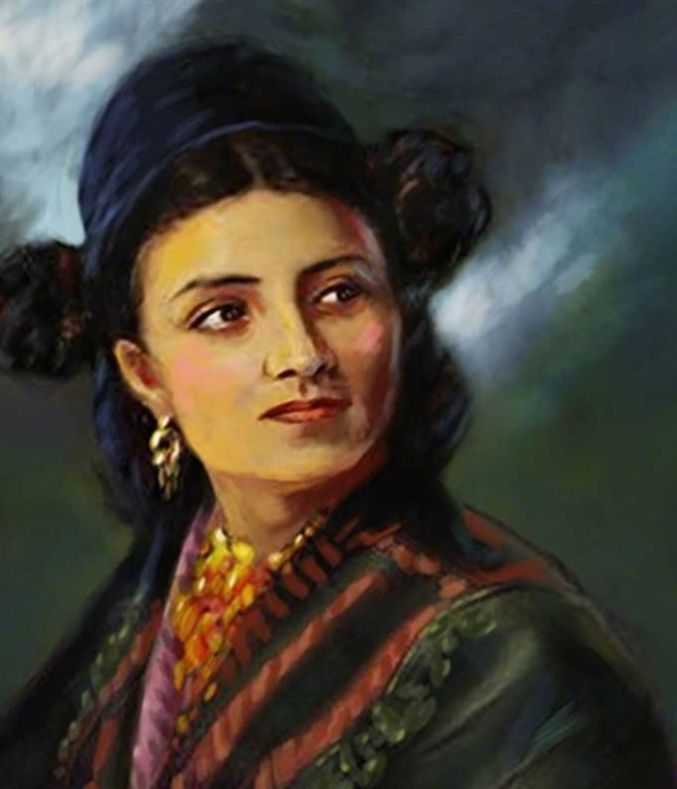Maryam Khan, born in 1904 in the village of Dergul in the Botan district of North Kurdistan, holds a significant place in the history of Kurdish music. She was the daughter of Muhammad, son of Ahmed, and is remembered as the first Kurdish female singer to have her songs recorded on gramophone records. Known also as Mirem Khan, her contributions to Kurdish folk music have left an enduring legacy.
Maryam’s early years were spent in the city of Diyarbakir, a period marked by the tumult of World War I. The outbreak of the war in 1914 brought immense hardship to the region, disrupting the political and social fabric of the area. As a result, many people from the region, including Maryam’s family, were forced to migrate to safer locations, with many heading to South Kurdistan and Syria. They left behind their homes, villages, and possessions, seeking refuge from the conflict.
Though her childhood was shaped by these turbulent events, Maryam’s passion for music flourished. She first moved to Syria, where she lived for a time in Damascus before heading to South Kurdistan in 1924. There, she settled in Zakho, where her love for music continued to grow. In the late 1920s, Maryam moved to Baghdad, hearing that a recording company had been established in the city. She rented a house in the Bab al-Sharqi district and set up a comfortable home, ready to pursue her dream of recording her music.
In 1930, Maryam Khan recorded several of her iconic songs with the Odin and Beyzafon companies. These recordings would become an integral part of Kurdish music history, including songs like Lorke Lorke, Guli We Nar We Nari, Hey Berde Berde, Leli Weso, Gul Sheni Sheni, Yar Halime, Mohammed Rumi, Leli Emo, Li Dai, Leli Swaro, and Ey Delal. These folk compositions, rich in emotion and cultural depth, resonated with Kurdish listeners far and wide.
In addition to her recorded works, Maryam Khan was a prominent presence on Kurdish Radio Baghdad, where she performed live broadcasts, sharing her powerful voice with an even broader audience. She also collaborated with other notable Kurdish artists, such as Muhammad Arif Jaziri, Hassan Jazrawi, and Almas Muhammad, often performing duets that further enriched the cultural landscape of the time.
Despite her success, Maryam’s life was marked by personal tragedy. In 1949, she fell ill with a fatal disease. After being admitted to a specialized hospital and undergoing various treatments, her condition worsened. Maryam Khan passed away in Baghdad in July 1949, leaving behind a legacy of unforgettable music. Her death marked the end of an era for Kurdish folk music, but her recordings continue to echo through the generations.

